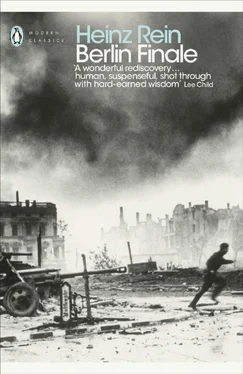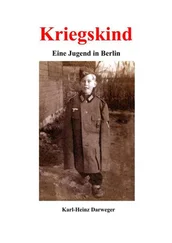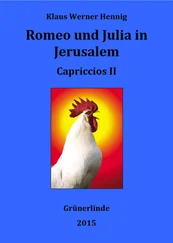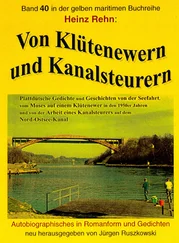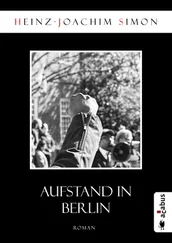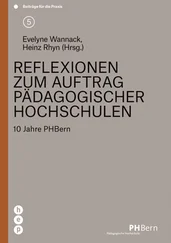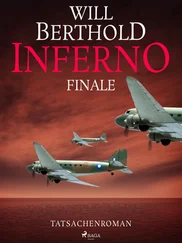Even in those days of utter chaos a man like Eckert must stand out. A police patrol picks him up at last and tries to persuade him to leave the disaster area first by calling out to him and then by grabbing him with a practised grip. Eckert desperately defends himself, but the police are stronger than him, so in the end he gives in and allows himself to be led away with a policeman on either side.
One of the officers, a young man with a smooth, vacant face, claps him approvingly on the shoulder and says quite casually: ‘It’s bad, old man, but take comfort from the fact that you can only die one death.’
Eckert doesn’t listen at first, but then the words trickle into his consciousness. What did the cop just say? You can only die one… Eckert stops in front of the policeman and looks him in the face, at once desperate and menacing.
His threatening gaze makes the policeman uncomfortable, he pushes Eckert away with a dismissive gesture and asks, ‘What’s up? Why are you staring at me?’
Eckert doesn’t avert his eyes, he goes on looking at the policeman. ‘You can only die one death, you say?’ he mumbles. ‘Yes, of course, only one death.’ His voice gets louder and finally rises to an animal roar. ‘Yes, only one death, but it matters what kind of death it is, whether you die, just die, because syphilis slowly eats you up, or because one day your heart gives out, but this is not dying, burning, charring, choking, drowning, cut down or crushed, shredded or pulverized by the blast…’
‘Fine,’ the policeman says, and takes a step back. ‘Could all be, but come with us for now.’
‘You’ve got to understand,’ says the other policeman, an older man with a coarse face, gesturing with his eyes to the other man, ‘that you can’t go on creeping around the disaster area. Who are you looking for?’
‘My wife,’ Eckert replies, ‘my wife and my daughter, they must be here somewhere.’ He points to the ruins with his right hand. ‘Here or there or over there, somewhere. Perhaps they’re dead already, but perhaps they’re still alive and we’re standing on their sarcophagus right now.’
‘It’s ridiculous looking here, you won’t find them alive,’ says the older policeman. ‘And that’s enough looking now. We don’t want to take you along. Go!’
‘Where to?’ Eckert asks. ‘Can you tell me that?’
‘Home, of course,’ the younger policeman says. ‘Where else? Or have you been bombed out?’
Home? The word stings Eckert’s consciousness like a goad. Home? Into the dead, empty flat, where every item reminds him that his wife and daughter were still living there two or three days ago? Being there is almost worse than searching in this field of corpses.
‘Be reasonable,’ says the older policeman, and puts his hand on his shoulder. ‘Go!’
Eckert, who has already turned his back on the policemen and begun to walk away from them, jerks round. It’s as if something inside him has torn open, as if the crust that has hitherto covered his soul is breaking open and everything that has been repressed for years and repeatedly held down is spilling to the surface through the crack. The images run rapidly through his brain: the loss of his two sons, the fate of his wife’s sister, who married a Jew and was beaten to death in Sachsenhausen, the arrest and cold-blooded destruction of Dean Lichtenberg (because Eckert is a devout Catholic), the total conversion of the people to materialism, the appeals to God from the mouths of rapacious murderers, the insane prolongation of a war lost long ago.
‘Heil Hitler, you say, here, in the ruins of Berlin?’ Eckert roars, and lowers his head like a bull waiting to attack. It may be, it’s even likely, that the young policeman only gave the Hitler salute out of habit and without giving the matter any particular attention, but Eckert can no longer consider that possibility, his brain has been deluged by a red wave, all reflections are extinguished, hate, rage, fury, contempt, despair fill every cell and every pore. This man with the green uniform and the cap, right now he is the system itself, from beneath the peak of the cap pulled low over his eyes there grins the repellent grimace of the hated devil of Braunau, the Antichrist.
With one leap Eckert is on him, both hands grip the man’s throat, they press tightly, almost compressing the throat, the young policeman has almost lost his balance under the attack, he totters and falls to the ground, but Eckert doesn’t let go. He is in an intoxicated state, his surroundings have vanished into the ground, all that remains is him and beneath him the other man, that devilish grimace with the little black moustache on the upper lip.
The other policeman was so surprised by Eckert’s sudden outburst that he missed the moment to intervene. He draws his gun from his side pocket. ‘Let go!’ he roars. ‘Let go this minute!’
The voice reaches Eckert as if from a long way off, the blood rushes in his ears, wild and unruly, his hands tighten their grip on the throat, the young policeman is dazed, his face has gone crimson and is already turning blue.
The other policeman tries to pull Eckert away, but he can’t, Eckert’s hands are like iron fetters around the young policeman’s neck.
‘Let go!’ the older policeman roars again. ‘Or I’ll fire!’ He lashes out at Eckert, but Eckert doesn’t release his grip, he presses his adversary’s head deeper and deeper into the gravel, his breathing is coming in pants. His lips start foaming. Then the older policeman kneels down next to Eckert, puts the pistol to his temple and pulls the trigger.
A short, sharp bang and a dull crackle and it’s over. Eckert’s head falls sideways, his body arches, then slides down and rolls a few metres down the steep scree.
Not everyone who has devoted his life to Führer, nation and fatherland has been given an official obituary. What follows is a report from Police Commissioner Wilhelm Schikorra from the 13th Police District:
On 6 February 1945 local patrolman Günther Dietzer and I were patrolling the incident site in the 13th Police District. At around 16.15 hours we noticed a very unkempt man was rummaging around the ruin of the building 12 Annenstrasse. He was later identified as the tram conductor Max Josef Anton Eckert, born in Bielefeld on 18 November 1894 and living in Berlin-Reinickendorf, 144/II Residenzstrasse. When first instructed to leave the ruin, Mr Eckert violently resisted. At last we managed to persuade him to leave the ruin without applying force. The local patrol man Officer Dietzler gave the Nazi salute as he did so. Hereupon Mr Eckert turned round and shouted: ‘Heil Hitler, you say, here, in the ruins of Berlin?’ At the same moment he jumped at Officer Dietzler’s throat, threw him to the ground and choked him very violently. Dietzler was completely dazed from the fall and the choking and hence not in a position to defend himself. I therefore ordered Mr Eckert twice and loudly to let go of Dietzler. Since he did not comply, and other attempts to release Dietzler from the immediate threat to his life were unsuccessful, I resorted to the use of my firearm. Mr Eckert died on the spot.
This is case III Ic of the Police Administration Law of 1 August 1931. Paragraph 53 of the Criminal Code is also invoked.
Berlin, 7 February 1945
Signed: Wilhelm Schikorra Police Commissioner
That is the story of the tram conductor Max Eckert, which may seem like the trivial fate of an unknown little man. It took place amidst the mayhem of an event that shook the continents, it was only a drop in a sea of blood and tears, but even the greatest events are composed of small and very small incidents, and only together do they constitute the large whole. The death of the tram conductor Max Eckert is only one small piece in the terrible mosaic of this vast war. Many died more pointlessly, most of them without the triumph of going for the throat of the hated adversary. Eckert died because his tormented and trampled soul discharged itself with the violence of a volcanic eruption. Neither did he die in vain or pointlessly, because every death in the struggle against tyranny goes on working, even if it does so invisibly. It is not the end and the conclusion, it is a new seed and a new beginning.
Читать дальше
